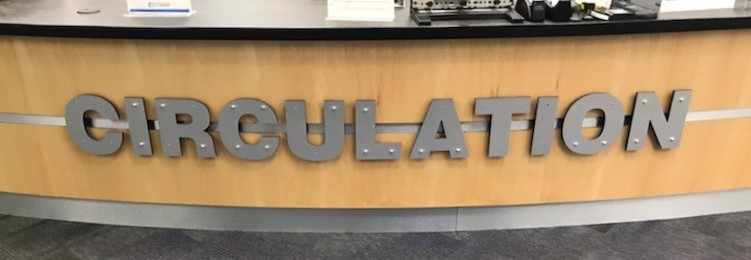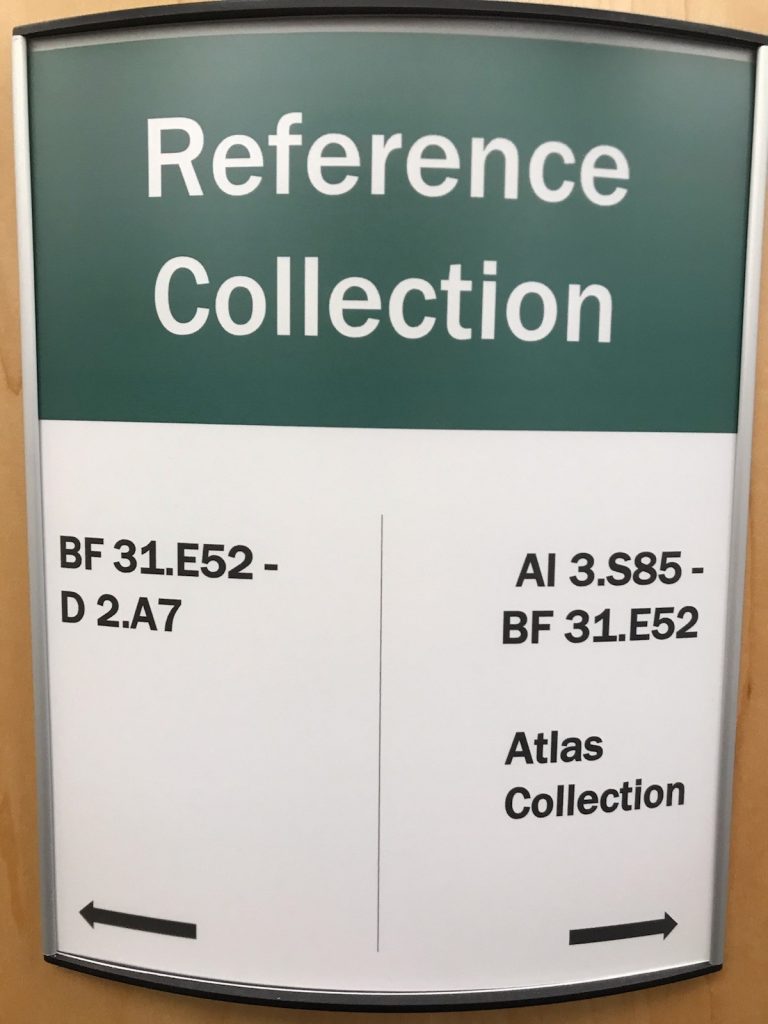We here in the library, like many other occupations, have specific jargon we use in our day-to-day work. We do realize this can be confusing and do our best to make things easy to understand. For example, we renamed the reference desk and now call it the Ask-Us Desk. However, some other areas or words are not so easily interchangeable. Below I’ll go over a few of those to try and help you out.
Archives
Archives at TAMU-CC refers to the collecting, sorting, and cataloging of all papers pertaining to the university. Examples include brochures handed out to prospective students, graduation programs, announcements etc. These archives can be found in the Special Collections and Archives department located on the second floor.
Book
Multiple pieces of paper bound together with words printed on the pages to convey knowledge.
Circulation
The word circulation literally means a movement to and fro. In the case of library circulation or the circulation desk we are referring to the movement of the books in and out of the library. We check the books out to the person, and they leave. After the agreed upon time period the person brings the book back.

Databases
A digital container that holds lots of journals. Journals in turn hold articles, which is what many of us use when conducting research. Examples of databases include Academic Search Complete, PsychInfo, and JSTOR.
Discovery Services
This refers to the service we use to help you discover articles, journals, and resources. Currently we use a program called Summon, but when helping people we refer to it as quick search.
Government Documents
These are documents put out by government agencies. If NOAA funds research, they receive an in-depth report on the findings. Since this is funded by government money, every American citizen deserves to have access to this report, so it is posted online and freely available. Government documents also cover a myriad of other things, including information pamphlets, memorandums, and proceedings. The library used to receive print copies of all government documents, but now with the advent of Technology it is mostly all kept online.
Holds
Holds are designed as a system to fairly give access to books. Libraries normally only have one copy of a book, and if it is in demand, we need a way to keep track of who asked for it next. If an item is checked out, you can request when it is returned, we hold it for you at the circulation desk. We then keep it for you on the hold shelf for one week. During that time no one else can use or check-out the book. If it is not picked up within the week we see if there is a second hold on the book, or we return it to its home. We also now have holds where if you find something you want, but can’t get it from the library immediately, you can put in a hold request and we will go grab it from the shelves and put it on hold for you.
Inter-Library Loan (ILL)
ILL is a service provided by the library to assist researchers when our collections have gaps. If you want a book or article and we don’t have it you can put in an ILL request. The request is then processed, and our ILL department reaches out to other libraries ILL departments and asks if we can borrow their copy of a book. If they say yes, it is then shipped to TAMU-CC and loaned out.
Joe
The only person in the library who knows how to use the microfilm machine (JK – our student workers and G.A.s are trained. Joe trained them.)
Makerspace (I-Create Lab)
Makerspaces are fairly new in the world of libraries. Bell Library only opened theirs up at the beginning of this year. In these spaces we try and provide items that are usually too expensive for students to purchase, but they need access to for their studies. In the I-Create Lab we have 3-D printers, a laser engraver, a sewing machine, a large format printer, and many other really cool things you can work with.
Patron
It’s you! Any student, staff, faculty member, or community member that comes into the library. Sometimes we say user instead, but we are talking about you.
Periodicals
Periodicals refers to magazines/journals that are published or that we receive at specific time intervals—i.e. weekly, monthly, yearly, bi-monthly, etc. Basically, things that are periodically published. We have both print and electronic versions of periodicals.
Quick Search
This is a search tool located on the library’s home page. It searches all the different things the library has access to including journals, databases, physical items, government websites, etc. We recommend using this tool when starting your research to help narrow down a topic. Since it searches through so much, you will get an overwhelming number of results. Once you know more specifically what you’re looking for, we recommend using a research guide or specific database to guide your search.
Reserves
Reserves are items, usually textbooks, that are held behind the circulation desk that have been selected as a tool for a class. Reserve items are usually selected by instructors. These items have limited check-out times and no option for renewal to make sure as many people as possible can access the item. Reserves can also be readings, DVDs, CDs, or books that aren’t textbooks that the instructor thinks are important.

Reference
“Reference” can refer to reference service or reference collections. Reference service is when you ask a librarian for help on a research problem and they guide you on where to look and how best to phrase your question. Reference collections are made up of standard materials you would reference to get a quick understanding of a subject. Examples include dictionaries, encyclopedias, handbooks and so on.
Research Guides
Research guides are guides made to help research in specific subject areas. They list helpful databases, journals, subject specialist contact information, and useful tips for where to look for more information on your subject.
Special Collections
Special collections are collections of works/papers donated by a specific person of note from the community. Here at Bell library we focus our collections on the South Texas Community and TAMU-CC. They are usually the works of community activists, government officials, influential families, or professors that worked here at TAMU-CC.
Stacks
Stacks refer to the shelves all those books are on. In descending size shelving is categorized into collection, range, stack, shelf.
Stapler
A mechanical device used to bind multiple pages together using a thin wire. Please be kind and do not steal or harm them, they scare easily, and we miss them when they are gone.
Wepa
Wepa runs our Wepa print stations. All the printers are connected to the same system which is convenient if you have a strong desire to hit print in one building and then go to another to print the page.
If you are wondering about other library terms, you can look here.


